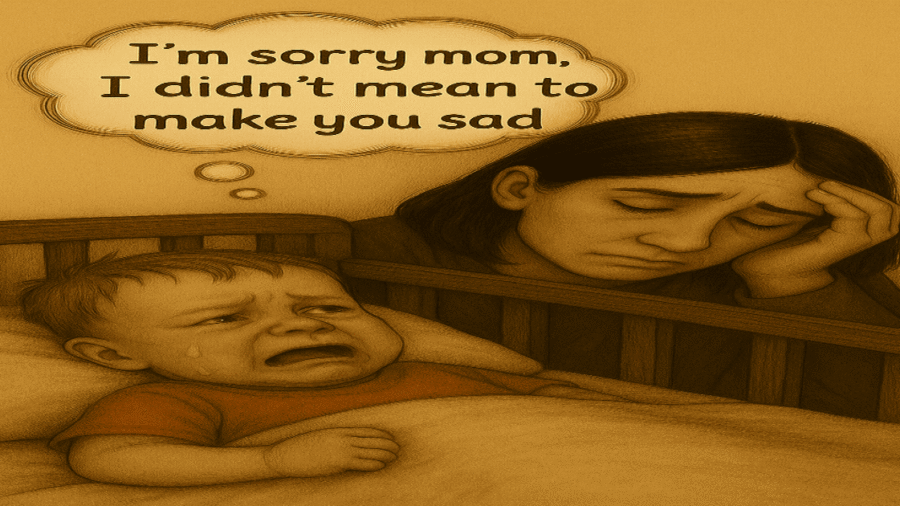Dealing with Postpartum Depression can be a though battle. Have you ever asked yourself, how weird it is that welcoming a baby into this world which is often portrayed as a time of happiness and fulfillment can also bring about so much unexpected emotional distress?
But actually, why not? Without any prior knowledge, imagine all that a woman goes through, hormonally, physically, emotionally just to bring another life into existence. Labour and delivery itself can be traumatic or exhausting.
Talk less of that, imagine the things she had to do to adjust to a new reality. Cleaning up, feeding, soothing, holding and understanding every cry just to take care of a newborn fragile child 24/7 while still in the process of healing.
It does not even stop there; there are bills to be paid. The pressure to “bounce back” physically and emotionally so as to return to work or normal life.
So no, it’s not weird at all. And in fact, it would be more than understandable for someone to feel worn out, drained, or lost in the midst of all this.
Understanding Postpartum Depression

It is common to have feelings of worry or doubt, especially as a first-time mom. But if your feelings are severe and prolong sadness and isolation, extreme mood changes and uncontrollable crying, you may have postpartum depression. This type of feelings when prolonged is referred to as Postpartum depression (PPD).
Postpartum depression (PPD) is a mood disorder that can affect women after childbirth. Unlike the “baby blues,” which are temporary and last less than two weeks, PPD persists longer and has more severe symptoms. It can even make a mother unable to take care of herself and her baby (Source).
Postpartum depression (PPD) is a serious mental health condition that affects approximately 17% of women globally after childbirth. However, these numbers may even be higher because most people who have issues with depression feel reluctant to acknowledge or accept help. (Source)
Causes and Risk Factors
Situation varies and chemical imbalances happen so PPD can be unavoidable at times. Some of these factors can result in the development of PPD:
- Hormonal Changes: After childbirth, the levels of estrogen and progesterone drop drastically, leading to mood swings.
- History of Depression: Women with a personal or family history of depression are more vulnerable.
- Lack of Support: Lack of emotional support from partners, family, or friends can increase risk.
- Stressful Life Events: Financial difficulties, relationship problems, or complications during childbirth can also be a factor.
It is important to note that PPD can affect any new mother either it is your first, second or third child. Also, regardless of age, race, or socioeconomic status PPD can still affect you.
Identifying the Symptoms
Recognising and addressing to the symptoms of PPD are crucial for the health of the mother and child. Postpartum depression can have variable symptoms but can include`:
- Persistent sadness or low mood
- Loss of interest in activities enjoyed in the past
- Fatigue or loss of energy
- Difficulty bonding with the baby
- Changes in appetite or sleep patterns
- Feelings of worthlessness or guilt
- Obsessive compulsive disorder
- Harmful ideas about harming the baby or hurting oneself (Source)
If these symptoms last more than two weeks or interfere with daily functioning, it is essential to seek professional help.
Seeking Professional Help
Early intervention can make a big difference in results for PPD-suffering mothers. Treatment entails: (Source, Source)
- Psychotherapy: Cognitive-behavioral therapy (CBT) and interpersonal therapy (IPT) have proven effective.
- Medication: Antidepressants, such as selective serotonin reuptake inhibitors (SSRIs), may be prescribed.
- Support Groups: Connecting with other mothers facing similar challenges can provide comfort and understanding.
Always consult with a healthcare provider to determine the best course of action.
Self-Care Strategies
Other than professional treatment, self-help strategies can also play a role in dealing with postpartum depression
- Sleep or Rest Regularly: Sleep whenever the baby sleeps to balance out fatigue.
- Eat Healthy Foods: Nutrient-rich foods can boost energy and mood.
- Engage in Physical Activity: Gentle exercises like walking can release endorphins.
- Set Realistic Expectations: Accept that it is okay to not have everything under control.
- Accepting and ask for help: Regularly communicate with friends and family. Talk about your feelings, make them aware of how you are feeling and be ready to accept help when they offer.
- Get a Hobby: Try developing a hobby aside taking care of the house. Painting, drawing etc.
Implementing these strategies can help manage symptoms of dealing with postpartum depression and promote well-being.
The Importance of Support Systems
Support systems are absolutely essential to recovery:
- Partner Support: Partners can assist with childcare and household responsibilities.
- Family and Friends: Loved ones can offer emotional support and assistance.
- Community Resources: Local organisations may provide counseling and support groups.
Encouraging open communication and understanding within these networks can alleviate feelings of isolation and loneliness.
Sometimes it is your first time, other times it is not, but all these feelings come overtime differently. But sometimes talking about it alone can feel like another failure. Because as a new mom you expected to be strong and take care of your child. Self-care does not been selfish, it means you care.
Helping Someone with Postpartum Depression
If someone you know is struggling about dealing with Postpartum Depression,
- Listen Without Judging (Be empathetic): Make them comfortable to open up about their emotions. And make them know you understand how they are feeling.
- Encourage Professional Help: Gently suggest seeking medical advice or counselling.
- Offer Practical Support: Offer support in house chores or childcare.
- Be Patient: Recovery takes time; continuous support is crucial.
Being present and understanding can make a significant difference in their journey to recovery.
Resources and Hotlines
For immediate support
These organisations offer confidential assistance and can guide you to appropriate resources to dealing with postpartum depression.
Conclusion

Most mothers do not take care of themselves again after birth but shift all their attentions to the newborn.
But remember
The most important thing you can do as a mother for your child is to take care of your own mental health.
Postpartum depression is a common yet serious condition that requires attention and care. Recognising the signs, seeking help, and leaning on support systems can pave the way to recovery. You are not alone, and with the right support, healing is possible.



Add a Comment